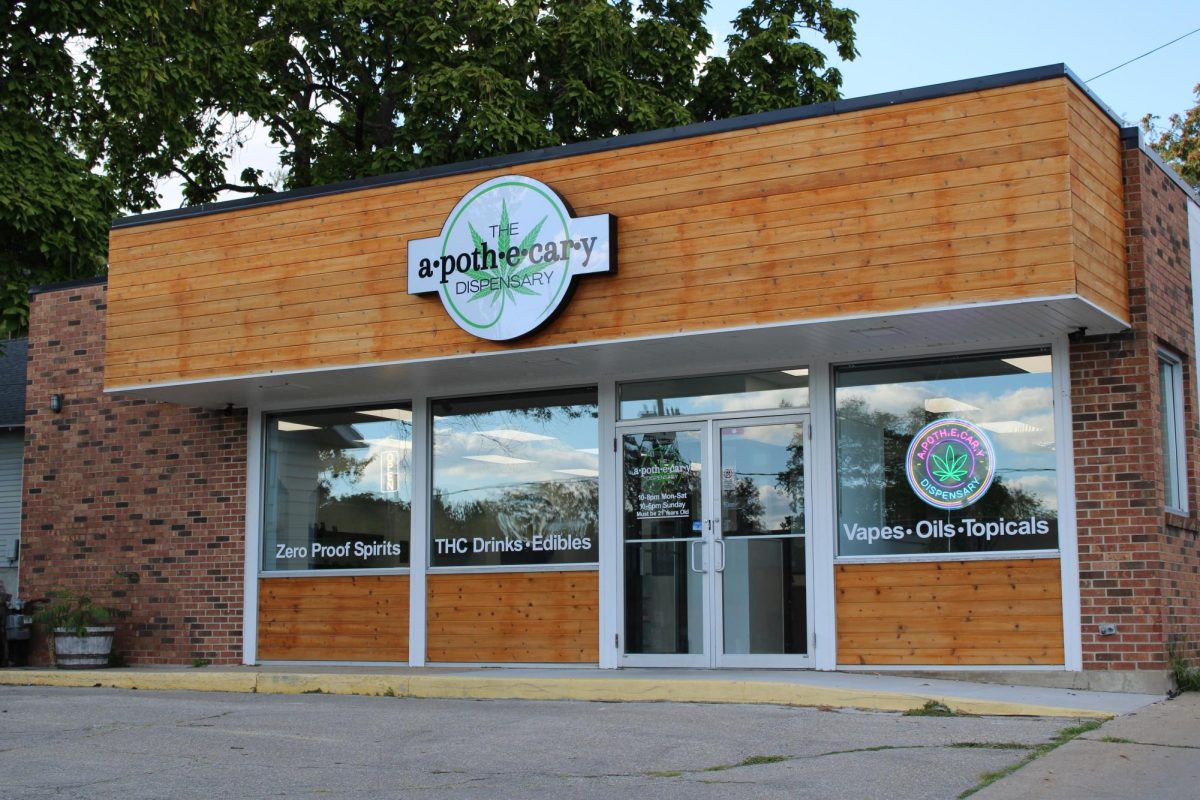Once filled with heavily stocked and varied shelves, The Apothecary Dispensary has seen many of its products disappear. The top-selling delta-8 and delta-9 seltzers and gummies are nowhere to be found, with several popular products having either been shipped out of state or destroyed.
The legalization of hemp in the 2018 Farm Bill created significant growth in Iowa’s hemp industry, which could sell products containing marijuana-derived, intoxicating compounds like delta-8 and delta-9 despite the state’s ban on recreational use. Since Jul. 1, however, House File 2605 has imposed limits and regulations on sellers, requiring THC drinks to be served in containers no smaller than 12 ounces, and requiring that each serving size have no more than four milligrams of THC.
The Apothecary, a dispensary that opened up on Forest Avenue near campus last spring, has been hit hard by the new THC limits. Sonny Gomez, the dispensary’s manager, has had to completely change the shop’s inventory since the laws passed.
“A lot of the brands that we used to carry, as far as edibles go, we actually don’t carry anymore, so we had to reach out and find new brands that already make Iowa-compliant products,” Gomez said. “However, our drinks, Climbing Kites and Happy Can, are something we carried before the law changed, but they were able to quickly reformulate with the turnaround time being about a month.”
Due to the lowering of THC levels in these products, many consumers have opted to simply buy more products, thus getting just as much THC, said Gomez.
“Since they’re only 10 milligrams, people will buy like four or five packages of something at once to get the same amount of what used to be in just one package,” Gomez said.
Although many retailers sell products produced outside the state of Iowa, there exist hemp growers within the state who, prior to the passage of HF 2605, sold products with a legal amount of THC as permitted by the 2018 Farm Bill.
One such Iowa producer, Scott Booher, runs Four Winds Farm with his wife Megan Booher. They produce a variety of hemp-derived products, two of which had to be reformulated due to new laws regulating THC.
“We only had two products we had to reformulate, but what has been an issue is that the Department of Health and Human Services has taken over, making the approval process much slower,” Scott Booher said. “We submitted our certificate of analysis with our products 30 days ago, and they still haven’t even called us back.”
Despite further regulation, Four Winds Farm has not seen a significant decrease in sales, in part due to the fact that their products use naturally derived THC and not synthetic.
“There’s a lot of people coming to us [saying] ‘I heard these products are synthetic THC,’ and they’ve been hearing a lot about synthetic products, so to hear that we have plant-based, natural THC, they want that,” Scott Booher said.
While retailers and producers may have had to change their practices, consumers have also had to change their purchasing and consumption habits.
Zakir Naqvi, a senior at Drake University, has changed his consumption habits of hemp-derived THC products, consuming less and even outright refusing to buy many products as a result of the changes brought about by the new laws limiting THC.
“As a college student, the number one thing I look for in drinks, whether that be THC or alcohol, is its cost effectivity,” Naqvi said. “If I have to pay $10 for a can that only has 4 milligrams, I’m never buying it, ever.”
Although lower THC products are cheaper, the lack of higher THC products in Iowa leads to many people exiting the market as consumers, unwilling to spend more money on something that they could once buy for a more compact price.
“If it is so expensive to get such a small legal amount, it just makes more sense to [take] an illegal route,” Naqvi said. “At that point, it is cheaper and more cost-effective to just buy flower and smoke it.”







